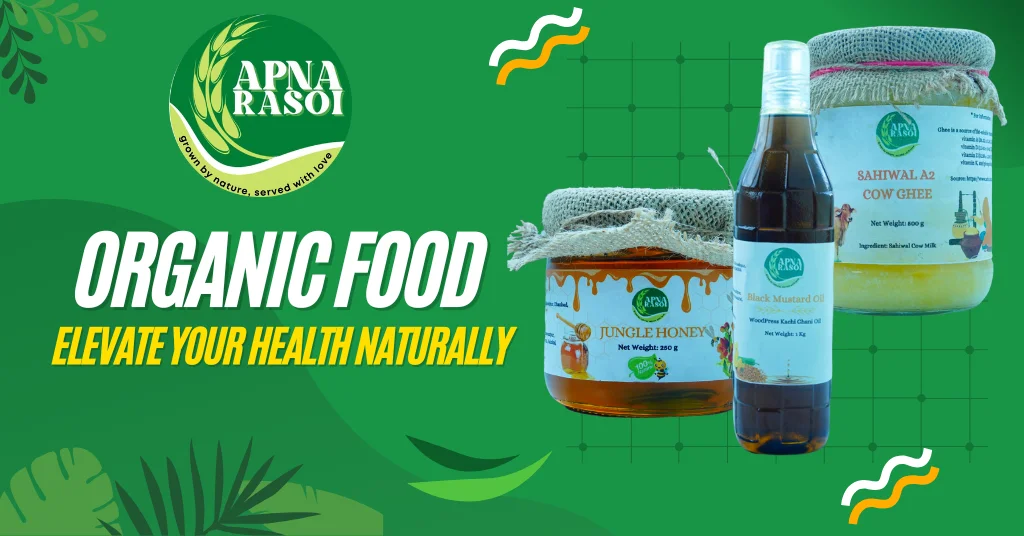
In a world where processed foods and chemical-laden products dominate supermarket shelves, the demand for organic food is steadily rising. People are becoming more conscious of what they eat, and for good reason. Organic food products not only taste better but also play a vital role in improving overall health and well-being. Let’s dive deep into how these nutrient-packed foods can transform your health and why they deserve a place in your diet.
Organic food refers to produce and other agricultural products grown without the use of synthetic pesticides, chemical fertilizers, genetically modified organisms (GMOs), or artificial additives. Organic farming practices emphasize sustainability, soil health, and the conservation of ecosystems.
1. Rich in Nutrients
Studies have shown that organic food products tend to have higher levels of essential nutrients like vitamins, minerals, and antioxidants. For instance, a meta-analysis published in The British Journal of Nutrition found that organic crops have up to 69% more antioxidants compared to their conventional counterparts. These antioxidants are crucial for combating oxidative stress, which is linked to chronic diseases such as heart disease and cancer.
2. Reduced Chemical Exposure
Organic foods are grown without harmful pesticides and chemicals, which can have adverse effects on human health. According to a study by the Environmental Working Group (EWG), pesticide residues are present in about 70% of non-organic produce. Consuming organic products reduces your exposure to these toxic substances, which are linked to issues like hormonal imbalances, neurological disorders, and even cancer.
3. Improved Digestive Health
Organic foods are often fresher and free from artificial preservatives. Fresh produce retains more fiber and digestive enzymes, which are essential for gut health. A healthy gut not only improves digestion but also strengthens the immune system and enhances mental well-being.
4. Lower Risk of Allergies and Sensitivities
People sensitive to food additives, preservatives, and artificial flavors often experience fewer allergic reactions when consuming organic products. Organic farming avoids these chemicals, providing a safer alternative for individuals with food intolerances.
1. Growing Popularity
According to the Organic Trade Association, U.S. organic food sales reached $58 billion in 2022, marking a consistent annual growth rate of 4-6% over the last decade. This growth highlights a shift in consumer preferences towards healthier and sustainable options.
2. Pesticide Residue
The USDA’s Pesticide Data Program revealed that 70% of non-organic produce contains pesticide residues, whereas organic produce showed significantly lower levels, making it a healthier choice for families.
3. Health Outcomes
Research by JAMA Internal Medicine showed that individuals who consumed organic foods had a 25% lower risk of developing certain types of cancer, such as non-Hodgkin lymphoma.
Whether you’re a fitness enthusiast, a busy parent, or someone managing a chronic illness, organic food products can cater to your unique health needs. Some popular organic food categories include:
1. Organic A2 Ghee and Oils
A2 Cow ghee made from the milk of desi cows offers superior nutrition. It is rich in omega-3 fatty acids, essential vitamins, and antioxidants that support heart health and digestion.
2. Raw Organic Honey
Unprocessed organic honey is a natural immunity booster. It’s packed with enzymes, minerals, and antibacterial properties, making it an excellent alternative to refined sugar.
3. Organic Pickles and Fermented Foods
Fermented organic pickles are not only delicious but also great for gut health. They are rich in probiotics that enhance digestion and strengthen immunity
While organic food can be slightly more expensive, the long-term benefits outweigh the cost. Think of it as an investment in your health. By choosing organic, you’re not only reducing your risk of chronic diseases but also contributing to a cleaner, more sustainable environment.
1. Start Small: Begin with staple items like fruits, vegetables, and dairy products.
2. Shop Locally: Support local farmers and markets for fresh and affordable organic produce.
3. Read Labels: Look for certifications like USDA Organic or India Organic to ensure authenticity.
4. Prioritize: Focus on the “Dirty Dozen” – a list of produce most likely to contain pesticide residues, such as apples, spinach, and strawberries.
Switching to organic food products is not just a trend; it’s a lifestyle change that can profoundly impact your health. By reducing your exposure to harmful chemicals and increasing your intake of nutrient-dense foods, you pave the way for a healthier, happier life. Moreover, your choices also support sustainable farming practices and a cleaner planet.
So, make the shift today. Your body, mind, and environment will thank you!
Share this post:
Welcome to APNA RASOI, where you can get naturally created, delicious, and nutrient-dense food products. Your go-to place for freshly created, lovingly crafted food products.
We are so excited to share our love of organic and homemade food products with you, and we sincerely hope you enjoy every bite!
Copyright 2024© Apna Rasoi. All rights reserved.
